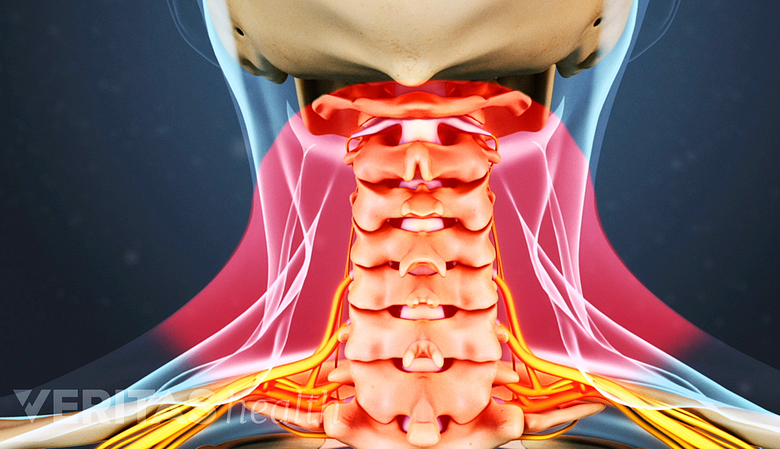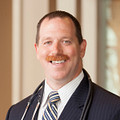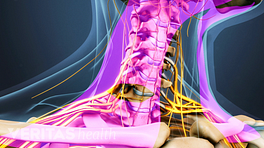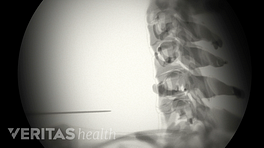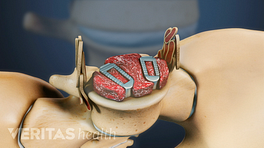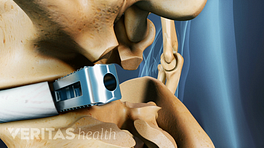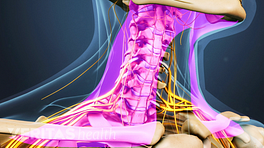A hoarse or weak voice, also known as dysphonia, is common after ACDF surgery. Most people fully recover their voice within a few days of the surgery, but others may have trouble speaking for weeks or longer.
See Anterior Cervical Discectomy and Fusion Complications
Dysphonia can be a frustrating and unexpected part of the ACDF recovery process. If dysphonia occurs, symptoms can range anywhere from minor voice changes to a softer, raspy voice that makes speaking more difficult, or even no voice at all. Symptoms can also change throughout the day, such as having no voice for part of the day and a raspy or gurgly voice at other times.
In This Article:
How to Manage Dysphonia During Recovery
After surgery, throat pain can make speaking uncomfortable and painful.
If the throat remains sore after returning from the hospital and speaking is still painful or difficult, the following tips may help:
- Consume soothing liquids and shakes. When the throat is sore, hard foods and hot liquids could further irritate the esophagus and make speaking even more difficult. Pureed foods, protein shakes, and soft foods go down easier while the throat and surrounding structures are healing.
- Go easy on the vocal cords until symptoms improve. Speaking too much can overwork the vocal cords and cause voice problems even in healthy people. If voice changes are noticed, speaking should be kept to a minimum when possible. For example, holding long conversations or returning to a job that requires lots of talking is not advised while the voice is still recovering.
- Keep alternative communication methods nearby. If speaking is particularly difficult or impossible, it helps to keep a pen and pad of paper in rooms where communication typically occurs, such as the kitchen, living room, or bedroom. Messages could also be sent using a tablet or smartphone. If voice problems persist beyond a few days, a voice amplifier or handheld microphone could be worth the purchase, especially for a person who needs to communicate with family members or a pet.
See ACDF Surgery Postoperative Care
Planning ahead for the possibility of dysphonia and having patience can help minimize the challenges while the neck and throat heal.
Risk Factors for Dysphonia
The medical literature has conflicting reports regarding risk factors for developing dysphonia following ACDF. For example, some studies have suggested that factors such as patient gender or length of operation time could increase the risk, whereas other studies have not. Current evidence suggest that the amount of pressure used when retracting the larynx (voice box) could correlate to an increased risk for dysphonia. 1 Jung A, Schramm J. How to reduce recurrent laryngeal nerve palsy in anterior cervical spine surgery: a prospective observational study. Neurosurgery. 2010;67(1):10-5. , 2 Garg R, Rath GP, Bithal PK, Prabhakar H, Marda MK. Effects of retractor application on cuff pressure and vocal cord function in patients undergoing anterior cervical discectomy and fusion. Indian J Anaesth. 2010;54(4):292-5. Other potential risk factors, such as length of operation time or patient gender do not seem to matter, but more research is needed.
How ACDF Might Cause Dysphonia
Short-term causes of dysphonia following ACDF are not well understood and typically resolve before a diagnosis is sought. In cases where dysphonia persists on a more permanent basis, such as a year or more, most research indicates it is due to an injury to the recurrent laryngeal nerve, which supplies most of the muscles that control the larynx (voice box) at the top of the trachea (windpipe). It is speculated that this type of injury most likely happens when the larynx is stretched and retracted to the side during surgery. Using the minimal pressure required to perform this maneuver may lower the risk for dysphonia following ACDF.
Other causes of dysphonia following ACDF exist, such as the possibility of infection or injury to other nerves.
When to See a Doctor
Most voice problems resolve within 1 to 4 weeks after ACDF surgery. If a voice problem lingers longer or throat pain significantly worsens, a doctor should be consulted.
- 1 Jung A, Schramm J. How to reduce recurrent laryngeal nerve palsy in anterior cervical spine surgery: a prospective observational study. Neurosurgery. 2010;67(1):10-5.
- 2 Garg R, Rath GP, Bithal PK, Prabhakar H, Marda MK. Effects of retractor application on cuff pressure and vocal cord function in patients undergoing anterior cervical discectomy and fusion. Indian J Anaesth. 2010;54(4):292-5.
